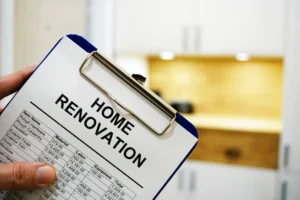
Home insurance for first-time buyers can be a complex and daunting task. It’s essential to approach this journey with a well-informed mind-set to ensure that you get the best coverage for your needs and budget. This article aims to provide valuable insights and practical advice to help you navigate the world of home insurance with confidence.
Understanding Home Insurance
Basics of Home Insurance
Home insurance is a type of property insurance that covers losses and damages to an individual’s house and assets in the home. It also provides liability coverage against accidents in the home or on the property.
Types of Coverage Available
There are various types of home insurance policies, each offering different levels of protection. The most common types include:
- Dwelling Coverage: Protects the structure of your home.
- Personal Property Coverage: Covers the loss of personal belongings.
- Liability Protection: Offers protection against legal action for injuries or damage.
How Insurance Premiums are Determined
Insurance premiums are calculated based on factors such as the value of your home, location, and the level of coverage you choose. Risk factors, like the likelihood of natural disasters in your area, also play a role.
Planning for Insurance
Assessing Your Insurance Needs
It’s crucial to assess your insurance needs based on the value of your property and personal belongings. Consider factors like the replacement cost of your home and the value of your assets.
Budgeting for Home Insurance
Budgeting for home insurance involves understanding the long-term costs and ensuring that you can comfortably afford the premiums without compromising other financial goals.
Choosing the Right Insurance Provider
Selecting the right insurance provider is about more than just finding the lowest price. Consider factors like customer service, claim response times, and the company’s financial stability.
Navigating the Buying Process
Application Process for Home Insurance
The application process involves providing detailed information about your property and negotiating terms with the insurer.
Understanding Policy Terms and Conditions
It’s vital to understand the terms and conditions of your policy, including exclusions, deductibles, and coverage limits.
Tips for First-Time Insurance Buyers
As a first-time buyer, take the time to research, compare policies, and ask questions. Don’t hesitate to seek advice from insurance professionals.
Avoiding Common Mistakes
Pitfalls to Avoid in Home Insurance
Common mistakes include underinsuring your home, overlooking policy details, and not updating your policy regularly.
Misconceptions about Home Insurance
Many first-time buyers have misconceptions about what home insurance covers. It’s important to understand that policies typically do not cover events like floods or earthquakes unless specified.
Claim Process and Management
Filing an Insurance Claim
In the event of damage or loss, it’s important to know how to file a claim efficiently and effectively.
Managing Insurance Claims
Managing claims involves documenting damages, understanding the assessment process, and following up with your insurance provider.
Adjusting Your Policy
When to Review and Adjust Your Policy
Regularly reviewing your policy ensures that your coverage keeps pace with changes in your life and property.
Upgrading Your Insurance Coverage
As your needs change, you may need to upgrade your coverage. This could include increasing your coverage limits or adding additional protections.
Cost-Saving Strategies
Discounts and Deals on Home Insurance
Many insurance providers offer discounts for things like security systems, smoke detectors, and bundling policies.
Managing Premiums Effectively
Effective management of premiums involves understanding how choices like higher deductibles can lower your payments.
Legal and Compliance Aspects
Legal Requirements for Home Insurance
Understanding the legal requirements for home insurance in your area is crucial to ensure compliance and adequate protection.
Compliance and Documentation
Proper documentation and compliance with policy terms are essential for a smooth insurance experience.
10 Essential Tips to Navigate Home Insurance for First-Time Buyers
Navigating home insurance as a first-time buyer can be overwhelming, but with the right information and approach, it can be a smooth process. Here are 10 essential tips to help you make informed decisions:
- Understand Your Coverage Needs: Assess the value of your property and belongings to determine the right coverage level.
- Shop Around: Compare policies from different providers to find the best fit for your needs and budget.
- Read the Fine Print: Pay attention to the details of your policy, including exclusions and limits.
- Consider Additional Coverage: Depending on your location and property, you may need additional coverage like flood insurance.
- Update Your Policy Regularly: Keep your policy updated with any significant changes to your property or lifestyle.
- Maintain Good Credit: Your credit score can affect your insurance premiums.
- Take Advantage of Discounts: Ask about discounts for security systems, smoke detectors, and more.
- Understand the Claims Process: Know how to file a claim and what the process entails.
- Build a Relationship with Your Agent: Having a good relationship with your insurance agent can be beneficial, especially during the claims process.
- Stay Informed: Keep up with changes in the insurance industry and how they might affect your policy.
FAQs on 10 Essential Tips to Navigate Home Insurance for First-Time Buyers
What factors affect home insurance premiums?
Home insurance premiums are influenced by factors such as the value and location of your home, the level of coverage you choose, and risk factors like natural disaster susceptibility.
How often should I review my home insurance policy?
It’s advisable to review your home insurance policy annually or after significant life events or property changes.
Can I lower my home insurance premiums?
Yes, you can lower your premiums by increasing your deductible, improving home security, and maintaining a good credit score.
What does home insurance typically cover?
Home insurance typically covers the structure of your home, personal belongings, and liability protection.
Is flood insurance included in standard home insurance policies?
No, flood insurance is usually not included in standard policies and must be purchased separately.
What should I do if I have a claim?
If you have a claim, document the damage, contact your insurance provider promptly, and follow their instructions for the claims process.
Conclusion
Navigating home insurance as a first-time buyer can be challenging, but with the right information and a proactive approach, you can find a policy that meets your needs and provides peace of mind. Remember to stay informed, ask questions, and review your policy regularly to ensure you have the coverage you need.






